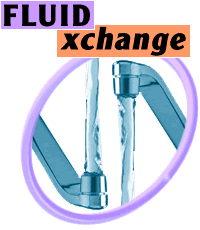Would you like to know if you have HIV in less than 15 minutes? Brace yourself. The coming of new kits that give rapid results could change the way people undergo HIV testing.
At least two medical companies have applied to Health Canada for a licence to sell fast HIV tests – called point-of-care kits – for use in clinics and doctor’s offices. Health Canada will not disclose what companies have applied, on what their proposals are based, when they applied or when a decision might be expected, saying it could affect stock value.
Though the tests have advantages for people concerned about their HIV status, AIDS professionals are concerned about the ethical implications – particularly who will be able to administer them.
If the kits are accurate enough for use in this country, Health Canada is not allowed to restrict their use for ethical or philosophical reasons. And it’s not allowed to regulate to whom the tests can be sold. All its Medical Devices Bureau will be able to do is require that a label on the packaging state who is permitted to use the test.
“There’s nothing in Canadian law that forces the manufacturer to limit the sale of these devices to any particular group,” says Dr Fred Lapner, acting manager of the device evaluation division at Health Canada.
But because these would be as easy to use as the pregnancy tests you can buy in the drugstore, who can use them is a major concern.
“Once the companies have approval, there’s nothing in the world to stop them from marketing, so they can start flogging them wherever they want within the guidelines,” says Jane Greer, administrator at the Hassle Free Clinic.
Testing right now, available through your own physician, or anonymously through clinics like the Hassle Free on Church St, involves waiting 10 days for confirmed results. There is little doubt this way, but it does take time.
In order to be approved, the point-of-care tests would have to be highly sensitive, says Lapner. There would be less than a 0.5 percent chance that the test would give a false negative result.
Because of the high sensitivity, though, a positive result is less reliable. It may mean nothing at all and the client would need to have a more reliable test before any conclusion could be made. It is this potential for false positives that makes people wary.
“The manufacturers are seeking to sell them for use in a physicians office or at the test site to actually give you a result in 15 minutes, but because they’re not confirmed results it raises questions about whether we should be doing this,” says Richard Elliott, director of policy at the Canadian HIV/AIDS Legal Network.
Provincial governments do have power to regulate who can administer such tests. But there are no Ontario regulations at the moment. If brought to market now, there is little to stop any health professional – including naturopaths and dentists – from administering the test: Hi, I’m here to check for cavities and HIV.
“There’s an area where the federal and provincial medical jurisdictions don’t quite mesh. Health Canada will say this is only for use by health care professionals and it’s up to the provinces to determine who’s a health care professional,” says Elliott.
On Jan 26, Elizabeth Witmer, Ontario’s minister of health, wrote the AIDS Committee Of Toronto that “the ministry does not currently have a policy on point-of-care HIV testing. A working group is currently developing counselling guidelines.”
Point-of-care HIV tests have both positive and negative implications.
On the pro side, a quick test might mean that more people get tested, and that those who test negative do not have to wait in the torture of suspense.
On the con side, the test could be wrong for no reason, and that person would have to start at the beginning of the usual testing procedure with increased anxiety.
Quick results could also reduce the quality of pre- and post-test care, pave a way for testing without consent, reduce confidentiality and encourage people to force their partner into a doctor’s office for a test.
Elliott raises questions about quality of care and confidentiality issues at the doctor’s office.
“We’ve also identified concerns about the quality of care provided by some physicians. Now some physicians do a great job, and some don’t because they don’t do HIV tests very often, or may not be comfortable talking about risk behaviours,” says Elliott.
Since the test is extremely easy to use, and could be performed by anyone – quickly – it is possible that there could me more cases of people having their blood tested against their will.
“I’m afraid of the potential abuses in, say, emergency rooms. So that someone comes in unconscious and they get their finger pricked. The other situation that keeps being bandied about that makes me quite anxious is that of testing women in labour who perhaps haven’t had pre-natal care. It may inform treatment decisions,” says Hassle Free’s Greer.
No matter how quick a test is, the discussion between the client and the health care provider before and after the test remains crucial. A rapid test might create unrealistic expectations of how the process should unfold.
“Some people might think they’ve got it all together, and this will save time. But then they find that they’re not prepared for a positive result. It is better to get the full treatment, and the full support,” says Lee Zaslofsky, advocacy and media relations coordinator for the AIDS Committee Of Toronto.

 Why you can trust Xtra
Why you can trust Xtra


